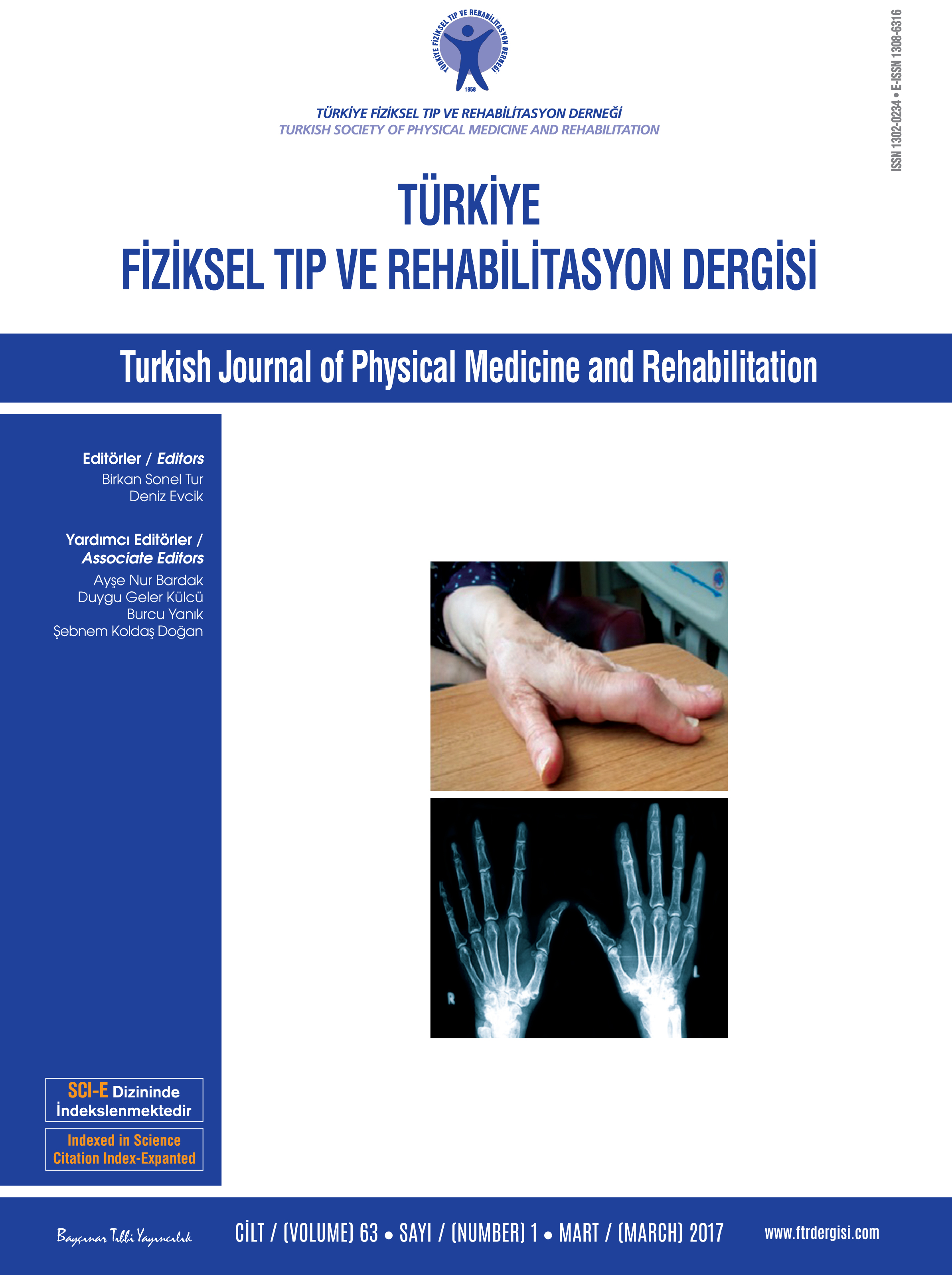The last station before fracture: Assessment of falling and loss of balance in elderly
2 Trakya Üniversitesi Sağlık Bilimleri Fakültesi Fizyoterapi ve Rehabilitasyon Anabilim Dalı, Edirne, Türkiye
3 Trakya Üniversitesi Tıp Fakültesi Fiziksel Tıp ve Rehabilitasyon Anabilim Dalı, Edirne, Türkiye
4 Trakya Üniversitesi Tıp Fakültesi Biyoistatistik Anabilim Dalı, Edirne, Türkiye DOI : 10.5606/tftrd.2017.90757 Objectives: This study aims to investigate the rate of balance disorders and risk of falling in the geriatric population who do not complain of a balance disorder.
Patients and methods: Sixty-eight elderly participants (24 males, 44 females; mean age 72.1±5.5 years), who were admitted to outpatient clinic between May 2012 and September 2012, were included in the study. Demographic data were recorded. Participants were divided into two age groups as young old (65-74 years) and old (75-85 years). Static balance was evaluated with Sharpened Romberg and the one-legged stance test. The dynamic balance and walking of the individuals were evaluated with Timed Up and Go (TUG) test, Berg Balance Scale (BBS), Tinetti (balance and gait) test (TT), and 20-meter walk test.
Results: None of the participants had sought medical help due to loss of balance or falling. According to BBS, 41% of the participants had a moderate risk of falling; 66% had moderate and high risk of falling according to TT; and 63% of them had a high risk of falling according to TUG. Thirty-four percent of elderly had experienced at least one fall over the last year. Loss of balance was more significant in women and number of falls was more (p<0.05). The total evaluation results in TUG and TT for the individuals in the young old group were better than the individuals in the older age group in terms of balance.
Conclusion: Loss of balance is a common finding in geriatric individuals and is associated with the risk of falling. Physicians, who frequently encounter with the geriatric population, should take this condition into account even for the patients who do not complain of a balance disorder. Thus, rehabilitation may be an option to prevent the fall and related complications, through the evaluation of balance.
Keywords : Balance; elderly; fall risk
















